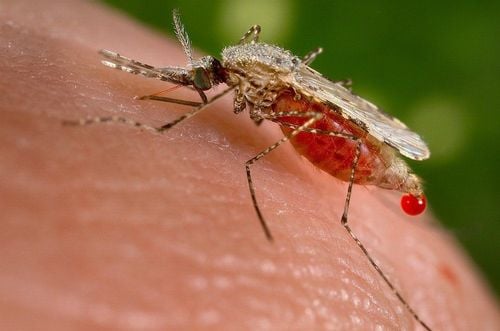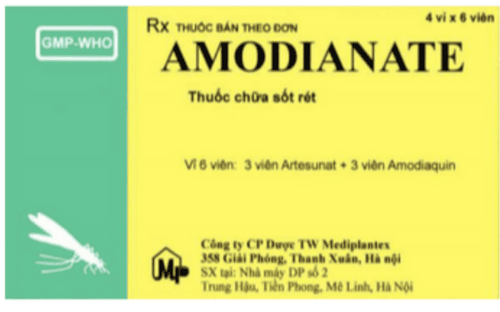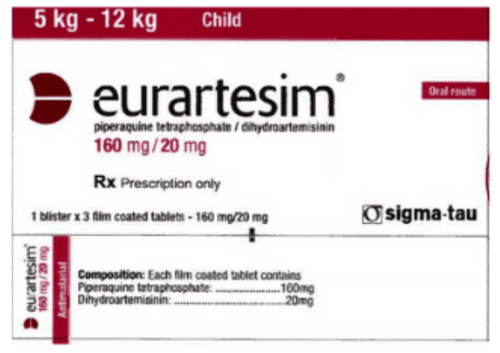This is an automatically translated article.
The incubation period of malaria is from the time when the mosquito carrying the sporozoite bites a person to transmit the disease to the onset of clinical symptoms with the first fever. This period is long or short depending on the type of malaria parasite being transmitted, averaging about 7-21 days.
1. Malaria Pathology
Everyone is at risk of becoming infected with malaria, even one person can be infected with two or three types of malaria parasites. Moreover, malaria immunity is short and incomplete, so there is a possibility of immediate re-infection if not thoroughly treated and effectively prevented.
A normal healthy person entering and staying in a malaria-endemic area if not taking good precautions will be very susceptible to being bitten by the female Anopheles mosquito - the vector that transmits malaria to humans under natural conditions. to transmit the malaria parasite (Plasmodium) and cause disease.
Anopheles mosquitoes can infect (malaria sporozoites) in the salivary glands, then bite the blood of healthy people (usually in the evening or at night) and transmit the disease. The sporozoites of the malaria parasite then begin to grow in the human body, forming a new stage in the life cycle and causing malaria.
In general, the pathophysiology of malaria is transmitted by blood, in addition to the main method of transmission by mosquitoes as above, there are 3 ways as follows:
Due to the transfusion of stored blood infected with the malaria parasite, the disease can be transmitted both have directly infected blood recipients for at least 1 month; Mother-to-child transmission through damaged placenta (rare); Blood-stained needles and syringes have malaria parasites, mainly in injecting drug users.
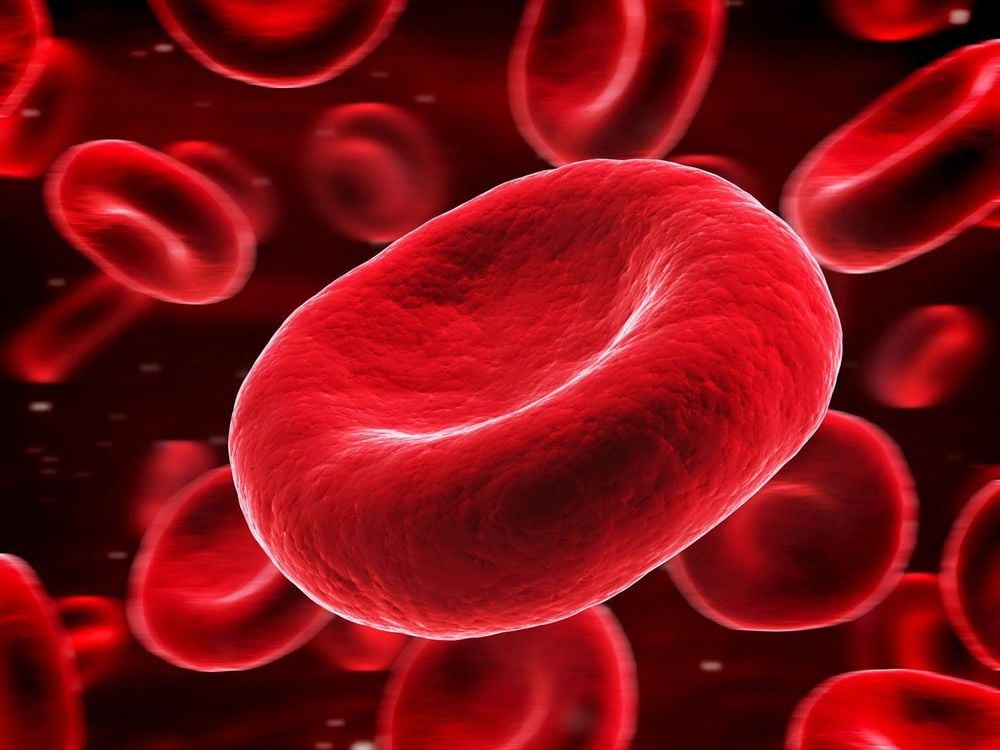
Bệnh sốt rét chủ yếu lây qua đường máu
2. Malaria incubation period
The time from when the mosquito carrying the disease is transmitted to a healthy person through the sting, until the first symptoms of the disease are detected is called the incubation period. This period will correspond to the period in which the malaria parasite develops in the liver cells, as well as the cycle of development in the red blood cells.
In principle, the young parasites after a cycle will break down the red blood cells to release the parasites into the blood, and then the patient begins to have a fever.
In fact, the first fevers that occur for the first time usually go through 2 or 3 cycles of development of the malaria parasite in red blood cells. The incubation period of each malaria parasite species is often different, specifically as follows:
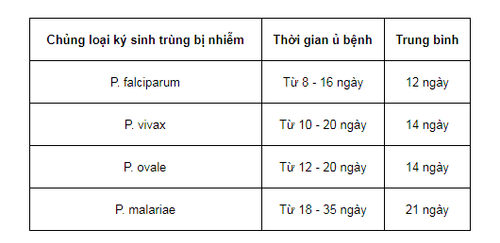
. Thời gian ủ bệnh sốt rét của mỗi chủng loại ký sinh trùng sốt rét
However, the incubation period of the malaria parasites P. vivax, P. ovale and P. malariae can still be months, years, or even decades later. . The cause is due to:
P. vivax and P. ovale strains: There are slow-growing sporozoites in liver cells, often called dormant or latent, parasitic in the liver after the parasite enters the body. ; P. malariae strain: Capable of slow growth in erythrocytes. In addition, if malaria infection is caused by blood transfusion from a patient or carrier of the cold parasite to a healthy person (not mediated by mosquito bites), the incubation period depends on the amount of parasites in the blood transmitted. In general, the incubation period of this case is usually short, lasting only a few days because the parasite is transmitted asexually (not gametocytes) in red blood cells.
3. Symptoms of early stage malaria
During the incubation period of malaria, the patient is still living, eating, and walking normally, with absolutely no clinical symptoms. In addition, the incubation period is long or short also depends on the body's resistance. A few days before the onset of the first fever, the patient will experience some initial malaria symptoms such as:
Fatigue; Anorexia; Nausea; Vomiting... Moving on to the onset of illness, the primary fever is often atypical and cyclical like subsequent fevers, specifically:
Fever that lasts for a long time, fluctuating; The patient is in a state of lethargy and fatigue. The time from the first fever to the appearance of gametocytes in the blood is 2 - 3 days (P. vivax, P. malariae and P. ovale) and 7-10 days for P . falciparum. Subsequent fevers often have a distinct cycle, corresponding to the development cycle of each type of malaria parasite in red blood cells. Sometimes the fever happens every day, sometimes it happens every 1-3 days. Typical clinical symptoms of malaria usually go through 3 stages: chills - fever - sweating.

Bệnh sốt rét thường kéo dài từ 7 - 21 ngày
In summary, the incubation period for malaria is calculated from the time a carrier mosquito bites a healthy person until the first onset of symptoms appear. The incubation period will vary depending on the type of malaria parasite infected, on average from 7 to 21 days, but can also be longer for dormant or latent liver parasites. The incubation period has a suggestive value, helping to diagnose the disease in clinical and blood test techniques to detect the agent malaria. Early diagnosis and treatment will limit the risk of death and reduce the spread.
Please dial HOTLINE for more information or register for an appointment HERE. Download MyVinmec app to make appointments faster and to manage your bookings easily.




